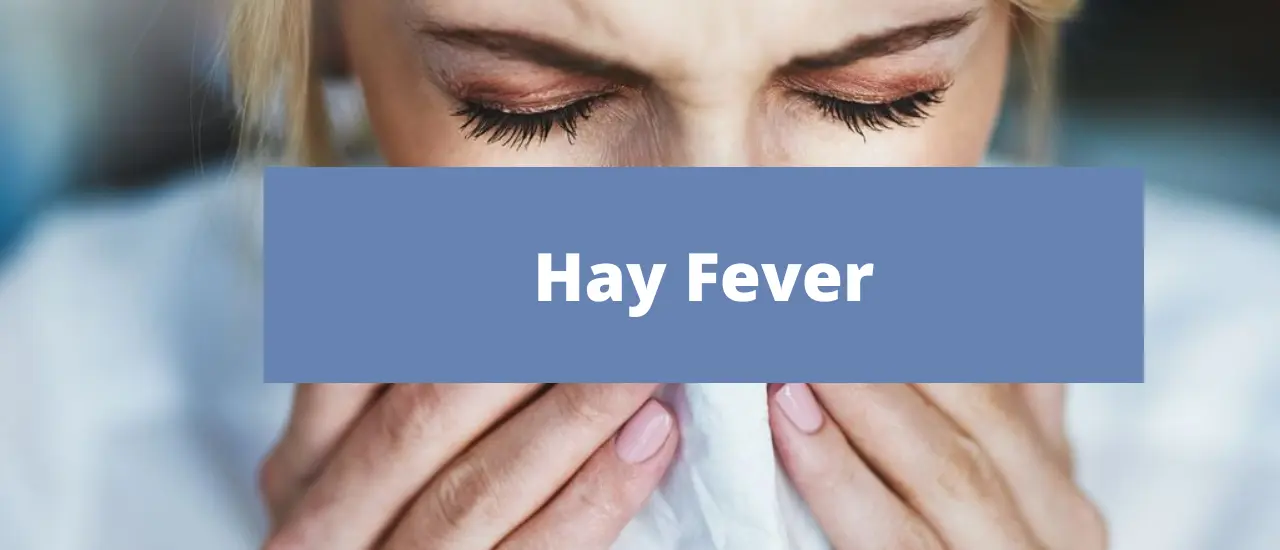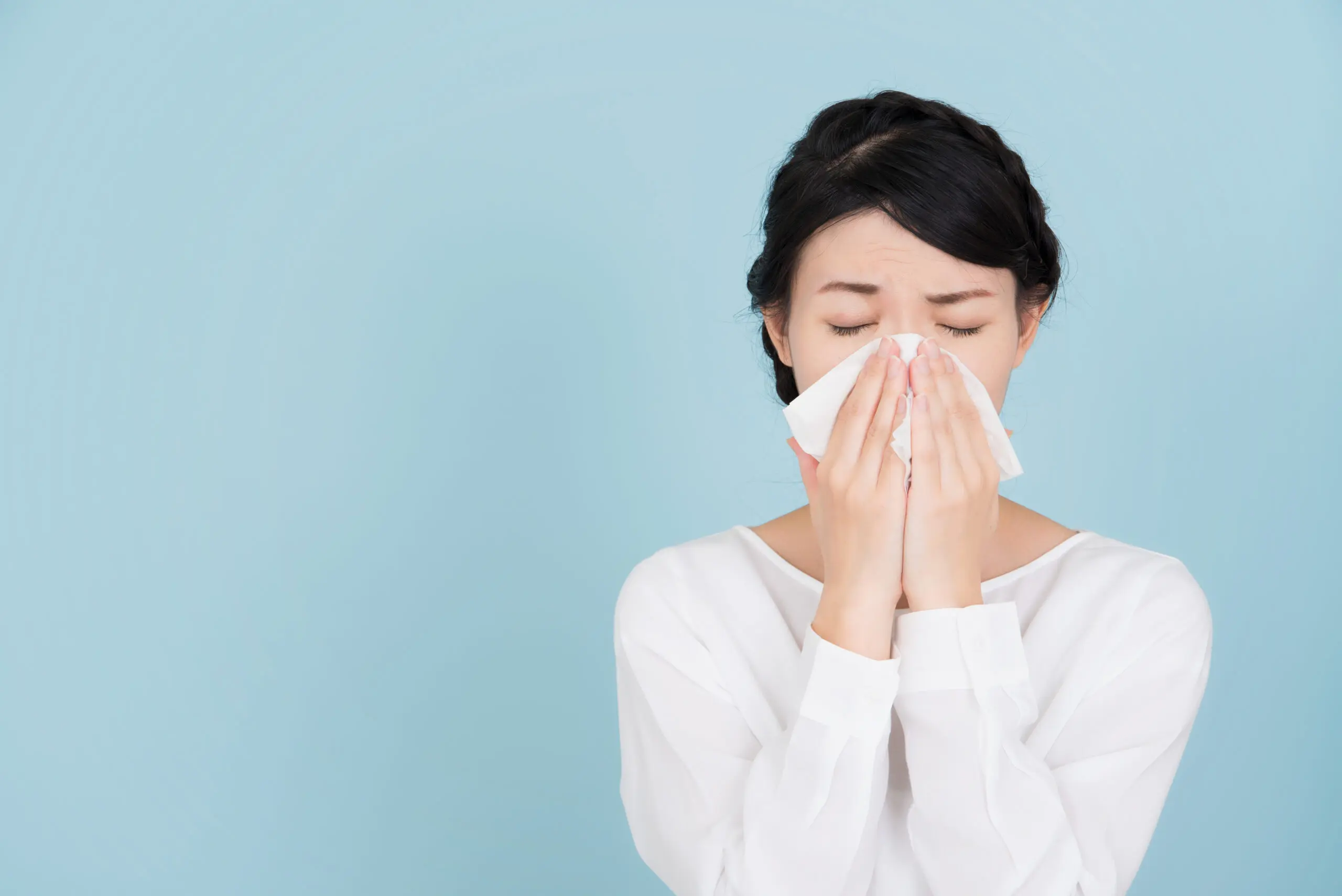


Hay fever is a common allergic condition that affects many people during certain times of the year. It causes symptoms like sneezing, itchy eyes, and a runny nose. However, there is another problem that often comes with hay fever and can make life difficult: hay fever fatigue. Hay fever fatigue means feeling extremely tired and lacking energy because of hay fever. When your body reacts to allergens like pollen or dust, it can make you feel exhausted. Many people with hay fever experience this fatigue, and it can have a big impact on their daily lives.
Hay fever, also known as allergic rhinitis, is an allergic reaction that occurs when the body’s immune system overreacts to certain airborne substances. These substances, known as allergens, can include things like pollen from trees, grasses, or weeds, as well as dust mites or pet dander. When a person with hay fever comes into contact with these allergens, their immune system mistakenly identifies them as harmful invaders. In response, the immune system releases chemicals like histamine, which leads to inflammation in the nose, throat, and eyes.
The most common symptoms of hay fever include sneezing, a runny or stuffy nose, itchy or watery eyes, and nasal congestion. These symptoms can range from mild to severe and can greatly affect a person’s comfort and daily activities.
Hay fever is often seasonal, meaning it occurs during specific times of the year when certain allergens are more prevalent. For example, tree pollen allergies are more common in the spring, while grass pollen allergies are more common in the summer. However, some people may experience hay fever symptoms year-round if they are allergic to indoor allergens like dust mites or pet dander.
Read Also: What Is Fatigue?
Hay fever can lead to fatigue due to several underlying causes and mechanisms. Understanding these factors can help individuals better manage their hay fever-related fatigue. When allergens, such as pollen or dust mites, enter the body, they trigger an immune response. This immune response involves the release of inflammatory substances, including histamine, as a defense mechanism. The inflammatory response causes swelling and irritation in the nasal passages, leading to symptoms like congestion and a runny nose.
This inflammatory process can also impact the body’s energy levels, contributing to fatigue. The immune system’s response to allergens requires significant energy resources, diverting energy away from other bodily functions. As a result, individuals may experience a general feeling of tiredness and lack of energy. Histamine, one of the key substances released during an allergic reaction, plays a role in fatigue and drowsiness. Histamine can affect the central nervous system, leading to drowsiness and a feeling of being tired. This is why some antihistamine medications, which block the effects of histamine, can cause drowsiness as a side effect.
Furthermore, hay fever symptoms can disrupt sleep patterns, contributing to overall fatigue. Nasal congestion, sneezing, and itching can make it difficult for individuals to get a restful night’s sleep. This can result in sleep disturbances, reduced sleep quality, and daytime sleepiness, further adding to the fatigue experienced by hay fever sufferers.
Hay fever fatigue manifests through various symptoms and signs, which can significantly impact an individual’s well-being and daily functioning. One of the primary symptoms of hay fever fatigue is persistent tiredness. Individuals may feel exhausted despite getting adequate sleep and rest. This fatigue can be overwhelming, making it difficult to carry out daily activities and maintain normal energy levels.

A prominent sign of hay fever fatigue is a general lack of energy. Individuals may experience a decreased motivation and find it challenging to engage in physical or mental tasks that were previously manageable. Simple activities may feel more demanding and require extra effort. Difficulty concentrating is another common symptom of hay fever fatigue. Individuals may struggle to stay focused or maintain attention on tasks, leading to reduced productivity and performance at work or school. Hay fever-related fatigue can impair cognitive abilities, making it harder to remember things, think clearly, or make decisions.
Hay fever fatigue can have a significant impact on daily activities, work productivity, and overall quality of life. Individuals may find it challenging to participate in social or leisure activities due to constant fatigue. Work performance and productivity may suffer as a result of decreased energy and difficulty concentrating. Moreover, hay fever fatigue can affect mood, leading to irritability, frustration, or a sense of being overwhelmed.
To alleviate hay fever fatigue, there are various strategies and lifestyle changes that individuals can implement. These approaches aim to reduce hay fever symptoms and improve overall energy levels.
Pharmacological options are available to manage hay fever symptoms and alleviate fatigue. Antihistamines are commonly used to block the effects of histamine, helping to relieve sneezing, itching, and nasal congestion. Nasal corticosteroids can reduce inflammation in the nasal passages, providing relief from congestion and other symptoms. Decongestants can also be used to temporarily relieve nasal congestion and improve breathing. It is important to consult with a healthcare professional to determine the most suitable medication and dosage for individual needs.
Non-pharmacological approaches can complement medication or be used as standalone strategies for managing hay fever fatigue. Allergen avoidance is key to minimizing exposure to triggers. This can involve staying indoors when pollen counts are high, keeping windows closed, using air filters, and wearing sunglasses to protect the eyes. Regular nasal irrigation with saline solutions can help flush out allergens and reduce congestion.
Additionally, using air purifiers in the home can help filter out airborne allergens, providing a cleaner indoor environment. Wearing a mask while outdoors can prevent inhalation of pollen or other allergens. Taking showers and changing clothes after spending time outdoors can also help remove pollen from the body and prevent it from being brought into the living space.
Incorporating a healthy lifestyle can also contribute to managing hay fever fatigue. This includes eating a balanced diet rich in nutrients, which can support overall energy levels. Regular exercise, such as low-impact activities like walking or yoga, can help improve stamina and reduce fatigue. Adequate sleep is crucial for replenishing energy levels, so establishing a regular sleep routine and creating a conducive sleep environment is important.
In addition to medical interventions and lifestyle changes, practicing self-care techniques can greatly assist individuals in managing hay fever fatigue. Here are some strategies to consider:
Remember, everyone’s experience with hay fever fatigue is unique, and it may take time to find the strategies that work best for you.
Yes, hay fever can make you feel tired. When you have hay fever, your body reacts to things like pollen or dust, triggering an immune response. This immune response releases substances that can make you feel sleepy and lacking in energy. Hay fever can also disrupt your sleep, making you feel even more tired. So, if you have hay fever, it’s common to experience fatigue and a lack of energy.
In conclusion, hay fever can make you feel tired. It’s caused by allergens like pollen and dust, which trigger an immune response in your body. This immune response releases substances that can make you feel sleepy and lacking in energy. Hay fever can also disrupt your sleep, making you feel even more tired. To manage hay fever fatigue, you can take medications, avoid allergens, and practice self-care. By doing so, you can reduce fatigue and improve your quality of life.